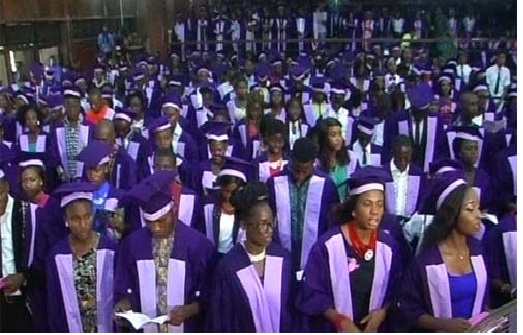Leaked memo uncovers new ways to secure university admissions in Nigeria


“My son registered and wrote the Unified Tertiary Matriculation Examination (UTME) three times before he was able to secure admission into the university to study,” recounted Mr. Ifeanyi Ozoemena.
Despite scoring over 200 in each sitting, Ifeanyi’s son struggled to gain admission to study computer science at a Southwest university. His breakthrough came only after a friend connected him to a staff member of the institution following his third attempt.
This highlights that admission into most public universities often extends beyond academic merit to relying on personal connections.
Similarly, Mrs. Eucharia Azu shared her son’s challenges in securing admission, even after exceeding the cut-off mark for his chosen course. She noted that popular courses often require extra leverage to secure a place.
“Some people get admission based on merit with the reforms at the Joint Admissions and Matriculation Board (JAMB), but ‘you need people who can push for you, and that gives you a level of assurance that someone is there to ensure your child is not passed by,’” she explained.
Other parents also lamented the diminishing role of merit in the admission process, noting how financial or political influence often determines outcomes. One parent admitted to paying to secure admission for their child after multiple failed attempts.
“It was the only option I had after he could not secure admission the previous year, and I did not want him to remain at home,” he said.
Admission into Nigerian universities remains highly competitive due to limited capacity. According to JAMB Registrar, Prof. Is’haq Oloyede, out of over 1,635,881 UTME and Direct Entry applications in 2023, only 639,263 candidates were admitted into tertiary institutions across the country.
The high demand for admission has driven many parents to explore unconventional means, including paying for slots or leveraging political connections.
This issue came under scrutiny after a leaked memo revealed a senator’s request to the Vice-Chancellor of the University of Abuja for the admission of four students into various courses, including Medicine, Law, Computer Science, and Public Administration. The memo listed UTME scores ranging from 181 to 264, with the lowest score intended for Computer Science.
The leaked document sparked widespread reactions online, with many criticising the undue influence of politicians in the admission process.
One X user, @Govern_mend, remarked, “Nigerian senator writes to seek university admission for constituents,” questioning, “Does a public office holder need to write a letter to a school for any student to be admitted?” Another user suggested this practice is a significant reason many qualified candidates are denied admission.
A former university vice chancellor revealed that requests from lawmakers and influential figures are common and complicate the admission process. However, sources from northern universities indicated that such requests do not always guarantee admission.
“If you don’t have up to the required cut-off mark on your JAMB (score), you don’t get admitted here,” a source said, adding that regulatory bodies such as the National University Commission (NUC) and JAMB closely monitor admissions.
At the University of Abuja, another source dismissed claims of political pressure, stating, “There’s no harm in trying to use their power; trying to use their office. They don’t get it. JAMB will not allow that.”
Prof. Ugo Sylvester, a lecturer at the University of Abuja and chair of the institution’s Academic Staff Union, explained that the leaked memo should be seen as an appeal rather than a directive.
“It’s a request, which you can turn down,” he noted, adding that the longstanding practice of creating a “VC List” allows vice chancellors to accommodate non-merit-based requests after merit lists are finalised.
Sylvester attributed the public outrage to deep-seated frustration with Nigeria’s political elite. “People don’t look at them as normal spectacles. People look at them with the spectacle of oppression because of what they have suffered over time,” he concluded.







